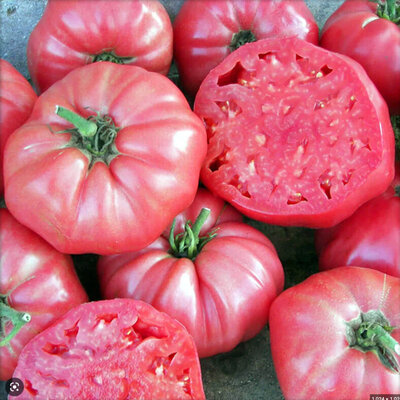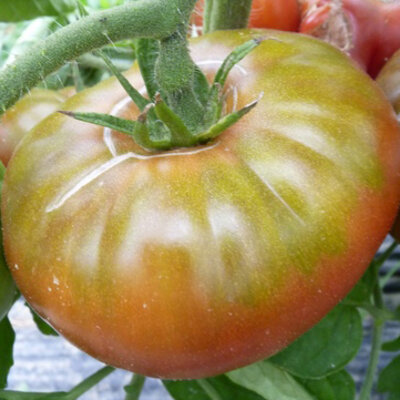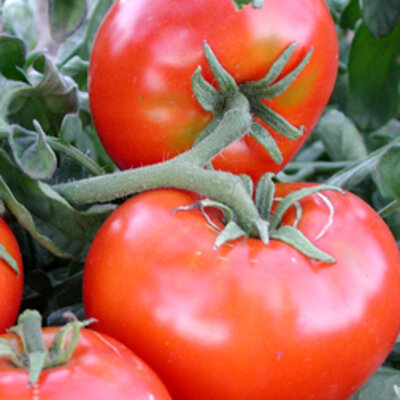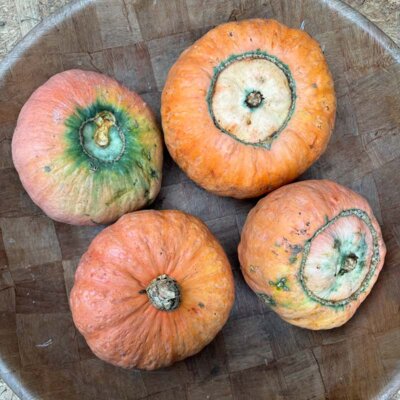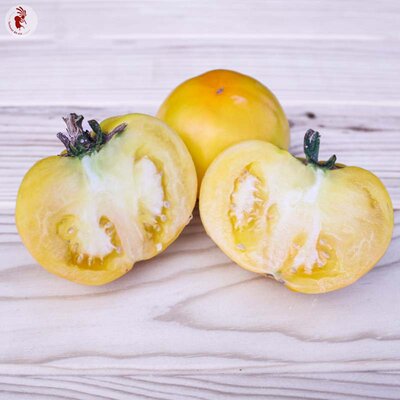
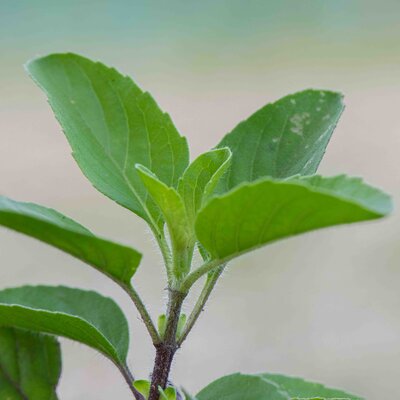
Tulsi Krishna - Basil and Tulsis
This ecotype of Tulsi is highly branched. It has green or purple stems and leaves, and mauve, sometimes white, flowers.
Discover it on Kokopelli's blog: "Tulsis and other Basilico-molecular Truths to free ourselves from the Terror of Pharmacy".
These products may also be of interest to you
in bucket
Sow in trays at temperatures between 18 and 20°C, under a well-lit shelter, 6 weeks before planting. Transplant into individual cups when plants have 4 to 5 leaves, or plant directly into warmed soil, spaced 25 to 30 cm apart. Take care not to over-water to avoid the risk of wilting.
March, April, May, June
June, July, August, September, October
in the ground, in pot, in the greenhouse
full sun
medium
potting soil, sandy, gravel, humus
drained, light, reheated
Ocimum tenuiflorum
mid-season
200 seeds
Green, Violet
fragrance, edible
From 30 to 60 cm
From 5 to 10 cm
elongated
India
"Semences de Kokopelli" by Dominique Guillet
Tulsi basil, or holy basil, has been used for thousands of years to treat bronchitis, diarrhoea, dysentery, arthritis, malaria, insect bites, eye problems, dermatological problems, colds, headaches, inflammations, gastric problems, poisoning and more. Tulsi is one of the most essential plants in India's three traditional systems of medicine and pharmacopoeia - Ayurveda, Unani and Siddha. For thousands of years, Tulsi has been used to treat bronchitis, diarrhoea, dysentery, arthritis, malaria, insect bites, eye problems, dermatological problems, colds, headaches, inflammations, gastric problems, poisoning and more. Tulsi also has properties for treating cancer, sterility, diabetes, microbial, bacterial and fungal infections, and heart problems. It is also an analgesic, anti-spasmodic and antipyretic. In short, it's an adaptogen, an antioxidant, an "elixir of life", reputed to prolong life. Its seeds are sometimes worn on the body as a protective charm: Tulsi is reputed to purify the aura. Tulsi Krishna contains approximately in mg/gr: 4.90 eugenol and 10.47 rosmarinic acid. This high concentration makes it one of the most medicinal Tulsi. See the article on the Kokopelli blog "Epopée des Cannabinoïdes Védiques".



